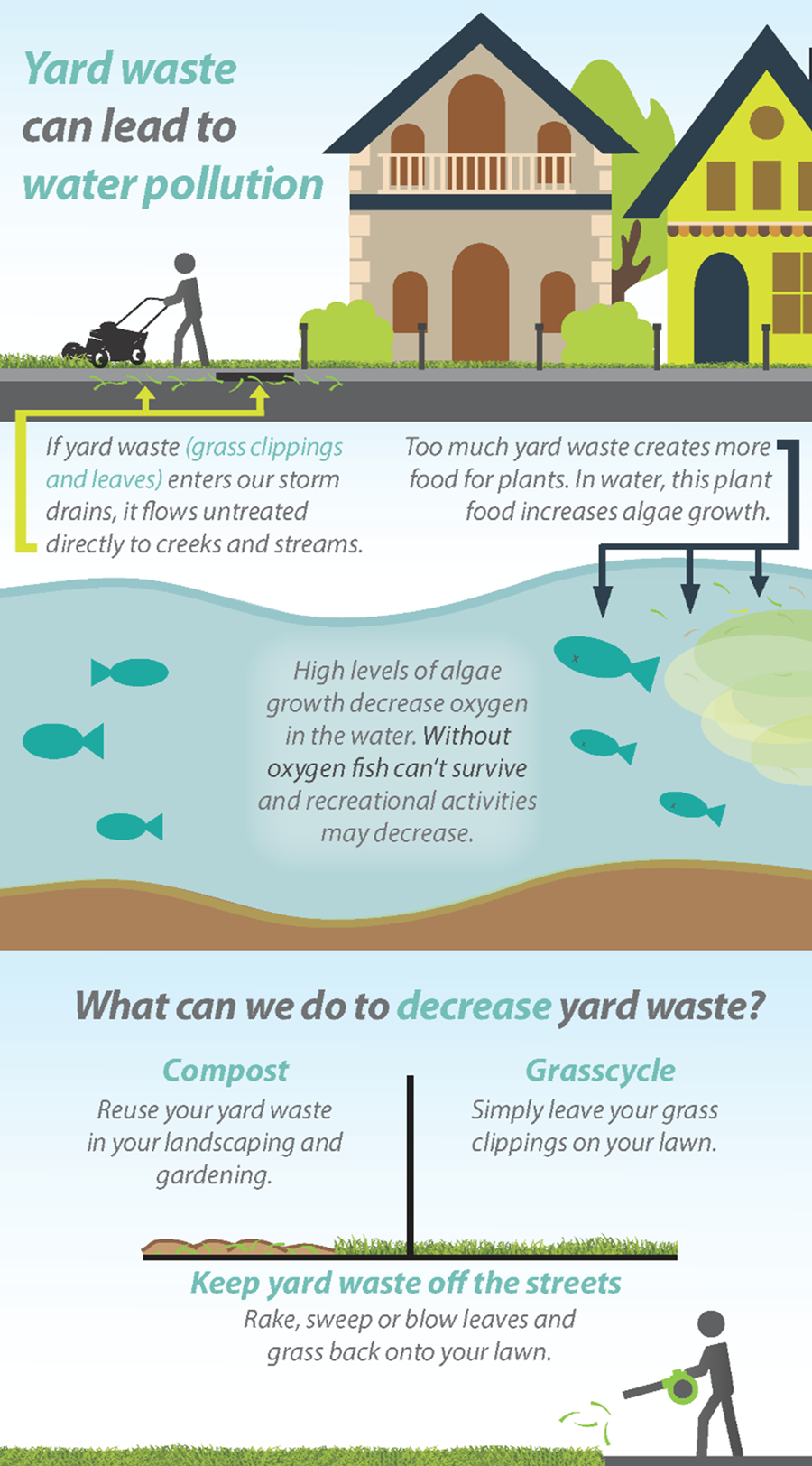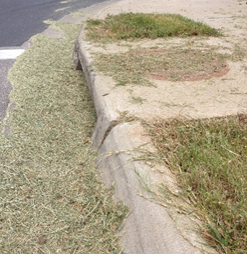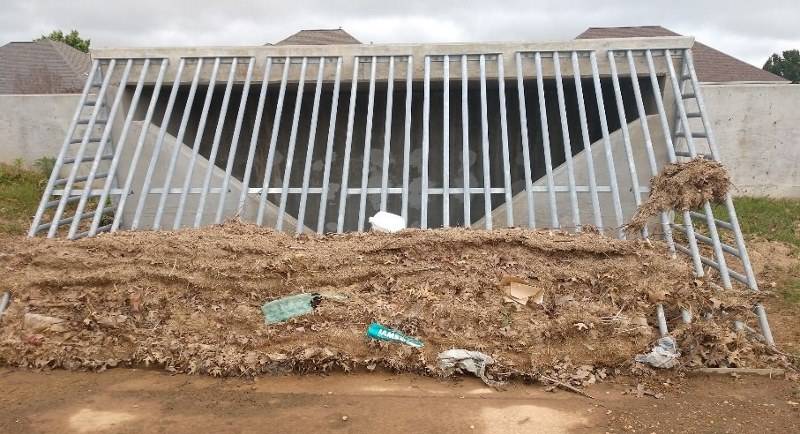6. Compost Yard Waste and Sweep Grass Clippings Out of Street Gutters

Grass Clippings and Leaves: Hidden Pollutants
 Most people don’t think of grass clippings and leaves as possible pollutants but they
can when they end up in waterways through our storm drain system. These materials
can contribute nutrients such as nitrogen and phosphorous, which cause unwanted and
uncontrolled growth of algae and aquatic weeds in the waterways.
Most people don’t think of grass clippings and leaves as possible pollutants but they
can when they end up in waterways through our storm drain system. These materials
can contribute nutrients such as nitrogen and phosphorous, which cause unwanted and
uncontrolled growth of algae and aquatic weeds in the waterways.
Too much algae is harmful to streams and lakes. It blocks sunlight and prevents other plants from growing. When it dies and decays, it also takes much needed oxygen away from fish.
The Dangers of Clogged Drains
When leaves and grass clippings are left on the street, they can wash into trains and clog them preventing the drains to move water during rain, causing flooding. Grass clippings also make streets hazardous for motorcycles by creating a slippery surface.

Try eco-friendly yard care!
Mulch leaves by running the lawnmower over them and leaving the shredded leaves and grass in the lawn. This also adds needed nutrients back to your lawn minimizing the need of added fertilizers. Or it is becoming popular to leave a “no mow” area of your yard for wildlife. There are certain types of grasses that are recommended for this practice.
Or consider making a compost bin or pile. Get our composting tips.
Be sure to sweep up any leaves and grass from driveways and sidewalks so they don’t end up down the storm drain.
Mow right and keep grass on site!
If grass clippings enter storm drains, they are carried to creeks and streams causing algae growth and water pollution. Follow these easy steps to protect water while keeping a healthy lawn!
- Follow the 1/3 rule - Never remove more than 1/3 of the leaf blade when mowing
- Raise mowing heights to the highest recommended height during stressful periods
- Sharpen blades after every 10hrs of use
- Avoid mowing within 48hrs of pesticide application
- Leave grass clippings on the lawn to grass cycle nutrients. Grass clippings left on the lawn can contribute up to 30% of a lawn's nitrogen requirements for the year!
- Always sweep or blow grass clippings back into lawn to keep them out of streets and creeks!
If yard waste enters storm drains, it flows untreated to creeks and streams. Too much yard waste creates more food for plants. In water, this plant food increases algae growth. High levels of algae growth decreases oxygen in the water. Without oxygen fish can't survive and recreational activities may decrease.
Download our factsheet to learn the best way to mow your lawn.
Visit our webpage on lawns in Arkansas for more tips.